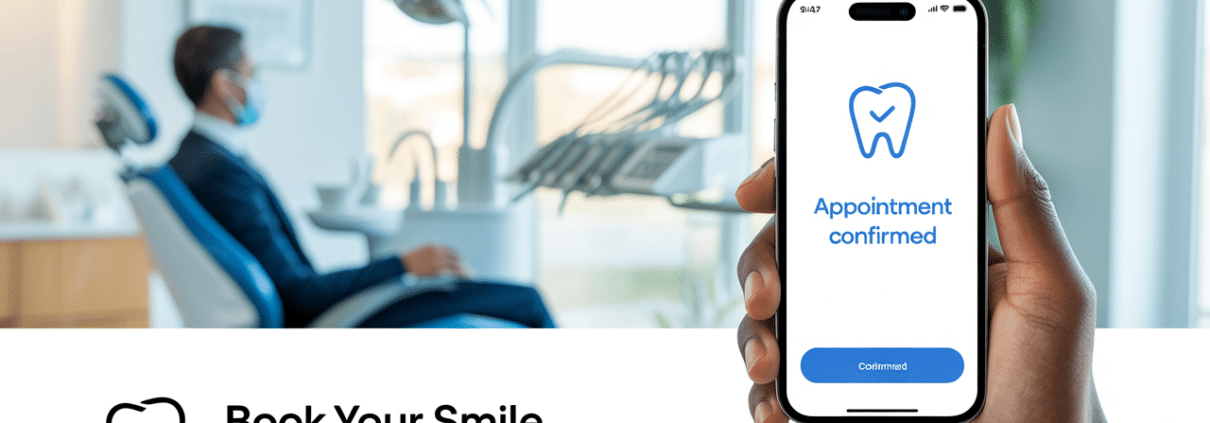That dull ache in the back of your mouth isn’t just annoying—it could be your wisdom teeth making their grand (and painful) debut. If you’re frantically searching “wisdom tooth removal near me,” chances are you’re dealing with pressure, swelling, or worse.
The reality? Wisdom tooth removal is one of the most common oral surgeries out there—and for good reason. These late-blooming molars often don’t play nicely with your existing teeth, leading to everything from infection to crowding. Whether you’re 17 or 37, here’s the no-fluff guide on when it’s time to yank ‘em, how the procedure works, and how to find the right provider near you.
TLDR – Quick Guide
- What Are Wisdom Teeth?: The third molars, usually erupting between ages 17–25
- Why Remove Them?: Impaction, crowding, pain, infection, or decay
- Cost Range: $200–$800 per tooth or $1,200–$3,000 for all four
- Recovery Time: 3–7 days on average
- Where to Go: Oral surgeons, general dentists with surgical training, and in some cases, dental schools
Detailed Breakdown: When to Remove, What It Costs, and What to Expect
1. When Should Wisdom Teeth Be Removed?
Not everyone needs their wisdom teeth out. But if you’re experiencing:
- Jaw pain or pressure
- Swelling or bleeding in the gums
- Difficulty chewing or opening your mouth
- Repeated infections in the back of the mouth
- Crowding of existing teeth
…it’s time to get them checked. According to the American Association of Oral and Maxillofacial Surgeons (AAOMS), early removal—especially during your late teens or early 20s—often leads to fewer complications and faster healing.
2. What Happens During the Procedure?
Whether you’re fully awake or under sedation, here’s what the process usually involves:
- Consultation: X-rays to assess position and severity
- Sedation Options: Local anesthesia, IV sedation, or general anesthesia
- Surgical Extraction: Incisions made, teeth removed (sometimes in pieces), and stitches placed
- Post-Op Care: Gauze, pain meds, ice packs, and a soft diet for a few days
Most procedures take less than an hour if you’re only having one or two teeth removed.
3. Recovery Timeline
Expect the following:
- First 24 hours: Swelling, mild bleeding, and soreness
- Day 2–3: Peak swelling and discomfort, managed with meds and ice
- Day 4–7: Healing begins, stitches may dissolve or be removed
- Day 7+: Back to normal activities, but avoid hard or crunchy foods
Pro tip: Follow your surgeon’s post-op instructions to avoid dreaded complications like dry socket.
4. How Much Does Wisdom Tooth Removal Cost?
Cost depends on factors like impaction, sedation, and your provider’s fees:
- Simple Extraction: $75–$300 per tooth
- Impacted Tooth Removal: $250–$800 per tooth
- Full Mouth (All Four Teeth): $1,200–$3,000
Insurance usually covers part of the cost, especially if removal is medically necessary. Ask your provider for a breakdown and get a pre-authorization from your insurer if possible.
5. Where to Find a Trusted Provider Near You
Start by searching “wisdom tooth removal near me” on:
- Google Maps: Check ratings, patient reviews, and provider photos
- Zocdoc: Filter by availability, insurance, and oral surgeon specialty
- Insurance Directories: PPO portals show in-network oral surgeons
- Dental Schools: Great for discounted care if you don’t mind student clinicians under supervision
Look for surgeons with solid reviews, modern technology (like 3D imaging), and sedation options that match your comfort level.
Key Takeaways
- Wisdom teeth often cause more harm than good—removal is a common and safe solution.
- You’ll want a professional evaluation if you’re experiencing pain, swelling, or crowding.
- The procedure is quick, recovery is manageable, and costs can be reduced with insurance or dental discount programs.
- Choose a skilled oral surgeon or general dentist experienced in extractions.
- Early intervention equals fewer complications and a smoother recovery.
FAQs
Is it really necessary to remove wisdom teeth?
Not always, but many are impacted or come in at odd angles, leading to future complications. A dentist or oral surgeon can evaluate your case.
Does insurance cover wisdom tooth removal?
Most PPO dental plans cover part or all of the cost if the removal is considered medically necessary. Check your plan for details.
How long does the procedure take?
Most extractions take 30–60 minutes. Full mouth removals can take slightly longer, especially under sedation.
Will I be awake during the surgery?
It depends on your comfort and the complexity of the case. Options range from local anesthesia to full sedation.
How do I avoid dry socket?
Follow post-op instructions: avoid smoking, use gentle rinsing, and skip straws. Dry socket is painful but preventable with good care.
You need a dentist, and the search begins with the usual: “dental clinic near me.” But here’s the plot twist—are you better off at a full-service clinic or a one-on-one private practice?
Spoiler alert: both have their perks, and the right choice depends on your needs, lifestyle, and even personality. Whether you’re looking for speed, savings, or that personal touch, this breakdown will help you choose the dental setup that works best for your smile (and your schedule).
TLDR – Quick Guide
- Dental Clinics: Fast, affordable, multiple providers under one roof; best for volume and variety
- Private Practices: Personalized care, long-term relationships, often higher pricing
- Ideal For:
- Clinics: Students, families, emergency care, low-income patients
- Private Practices: Ongoing care, specialty work, dental phobics
- Cost Comparison: Clinics often offer lower base rates, but insurance coverage varies
- Decision Factor: It comes down to speed vs. service
Detailed Breakdown: Comparing the Two Models
1. What’s a Dental Clinic?
A dental clinic is typically part of a hospital, community health center, university, or chain (like Western Dental or Aspen Dental). These facilities focus on volume, offering:
- Multiple dentists and hygienists
- Evening/weekend hours
- Basic to advanced services (sometimes even oral surgery)
- Sliding scale fees or lower costs for the uninsured
Pros:
- Quick appointments and walk-in availability
- Often lower cost or income-based pricing
- Great for families or multi-patient visits
Cons:
- Less personalized care
- You may not see the same dentist every visit
- Wait times can be longer despite appointment bookings
2. What’s a Private Practice?
A private dental practice is often owned by one or two dentists and offers a more intimate care experience. Think boutique versus big-box.
Pros:
- You build a relationship with your dentist
- Custom treatment plans with more time per visit
- Often uses the latest technology for diagnosis and treatment
- Generally quieter and less rushed
Cons:
- Higher cost, especially without insurance
- Less availability—may not offer weekend or emergency hours
- Limited staff means fewer appointment slots
3. Which Is More Affordable?
If cost is your top concern, dental clinics often win.
- Clinic Cleaning/Exam/X-rays: $75–$150
- Private Practice Cleaning: $100–$300
But it’s not always black and white. Many private dentists accept insurance or offer membership plans that compete with clinic pricing. And sometimes, the long-term cost of impersonal or rushed treatment can outweigh the short-term savings.
4. What About Quality of Care?
Quality can be excellent at both—but delivery is different.
- Clinics may prioritize speed and routine work
- Private practices offer consistency and deeper patient-dentist communication
Ask yourself: Do you want a provider who knows your name and your dental history—or are you fine seeing whoever’s available that day?
5. When to Choose One Over the Other
Choose a Dental Clinic If You:
- Are on a tight budget
- Need same-day or walk-in care
- Are looking for basic or preventive treatment
- Don’t mind switching providers between visits
Choose a Private Practice If You:
- Value personalized, long-term care
- Are undergoing cosmetic or restorative procedures
- Have dental anxiety and need a gentler approach
- Prefer scheduling with the same dentist each time
Key Takeaways
- A “dental clinic near me” may offer fast, affordable care—but can lack continuity.
- Private practices provide personalized care with more consistency—but may cost more and require advance booking.
- Choose based on your needs: clinics for convenience and cost, practices for relationship-driven, specialized care.
- Don’t assume clinics mean lower quality or private practices are always expensive—ask about insurance, financing, and care models.
- In Los Angeles neighborhoods like Los Feliz or Silver Lake, both types are available—so pick what fits your style and schedule.
FAQs
Are dental clinics safe and reliable?
Yes—many clinics are part of hospitals or educational institutions and follow strict care protocols. The downside is you may not see the same provider every time.
Do private practices cost more?
Usually, yes. But many offer in-house plans or accept insurance to make care more accessible.
Can I get cosmetic work at a clinic?
Some offer limited cosmetic services, but private practices are more likely to specialize in veneers, whitening, and smile design.
Which option is better for kids?
Clinics are great for families and may offer pediatric specialists. However, some private practices also focus on children’s dentistry and offer a more comforting setting.
What if I need emergency dental care?
Clinics often have walk-in or after-hours options. Some private practices also offer emergency slots, but availability varies.
Let’s be honest—booking a dentist appointment used to be a chore. Endless phone tag, hold music, awkward voicemails… no thanks. Thankfully, in the age of apps and instant bookings, getting into the dentist’s chair is smoother than ever.
But while the booking process has evolved, many first-timers still wonder: What actually happens at a dental appointment? Whether you’re overdue or totally new, this blog walks you through how to book online and what to expect from your very first visit.
TLDR – Quick Guide
- Online Booking Options: Dentist websites, Zocdoc, insurance portals, Google Business profiles
- What You’ll Need: Insurance info (if applicable), contact details, medical history
- First Visit Checklist: Paperwork, X-rays, dental cleaning, and a consultation
- Time Commitment: 60–90 minutes for new patients
- Pro Tip: Arrive early, bring ID and insurance card, and write down any questions or concerns
Implementation Tactics: From Online Booking to the Dental Chair
1. How to Book a Dentist Appointment Online
Skip the phone and try these digital options:
- Dentist Websites: Most modern offices have online booking buttons powered by tools like NexHealth or LocalMed.
- Google Business Profile: Just search “dentist near me” and hit “Book Appointment” directly from Google Maps.
- Zocdoc or Opencare: These platforms let you search by location, insurance, specialty, and availability.
- Insurance Provider Portals: Many dental plans offer in-network booking tools with pre-verified coverage.
Booking Tip: Weekends and late afternoon slots fill up fast. If you’re flexible, mid-mornings during the week offer the best availability.
2. What to Prepare Before Your Visit
You don’t need to study for a dentist appointment, but it pays to be prepared. Here’s what you should have:
- Photo ID and Insurance Card
- Completed Patient Forms (often available online in advance)
- Medical History including allergies, medications, and any recent diagnoses
- Previous Dental Records if you’re switching providers
- Questions or Concerns—write them down so you don’t forget during your visit
Bonus: Most dentists offer new patient specials if you’re paying cash. Ask about discounts when booking.
3. What to Expect During Your First Visit
First appointments typically take 60–90 minutes and include:
- Initial Consultation: A conversation with the dentist about your goals, habits, and history
- X-rays: Essential for spotting issues below the surface
- Gum Check: Measuring pocket depth to assess gum health
- Cleaning: If your gums are healthy enough, the hygienist will polish your pearly whites
- Treatment Plan: The dentist will walk you through any findings and suggest next steps, whether it’s fillings, whitening, or simply a 6-month checkup
If you have anxiety or special needs, mention it early—many practices offer sedation or distraction options (like noise-canceling headphones or Netflix).
4. Aftercare and Follow-Up
After your visit, you may be:
- Scheduled for Follow-Up Treatment: Fillings, deep cleaning, or cosmetic work
- Reminded for Routine Visits: Typically every 6 months
- Sent Home with Tips: On brushing, flossing, or products like fluoride toothpaste or electric toothbrushes
You may also get a post-visit text or email to leave a review, join a referral program, or rebook your next appointment.
Key Takeaways
- Booking a dentist appointment online is fast, easy, and often more flexible than calling.
- Bring essential documents like ID, insurance, and medical history to your first visit.
- Expect X-rays, a cleaning, and a full consultation on your dental health.
- Communication is key—ask questions, mention any fears, and clarify your goals.
- Stay consistent with follow-ups to prevent bigger issues (and bills) later.
FAQs
Can I book a dentist appointment without insurance?
Yes. Many dental offices offer cash prices, new patient specials, or payment plans. Ask about options during booking.
What if I haven’t been to the dentist in years?
No shame! Dentists are used to it. Just be honest about your history, and they’ll guide you through the process without judgment.
How often should I see the dentist?
Most people benefit from a checkup and cleaning every 6 months, but your dentist may recommend more frequent visits if you have gum issues or other concerns.
Can I cancel or reschedule a dentist appointment online?
Absolutely. Most systems allow rescheduling with 24–48 hours’ notice. Check the practice’s policy when booking.
Will I get a cleaning during my first appointment?
Usually, yes—if your gums are healthy enough. If not, your dentist may schedule a follow-up for a deep cleaning.



